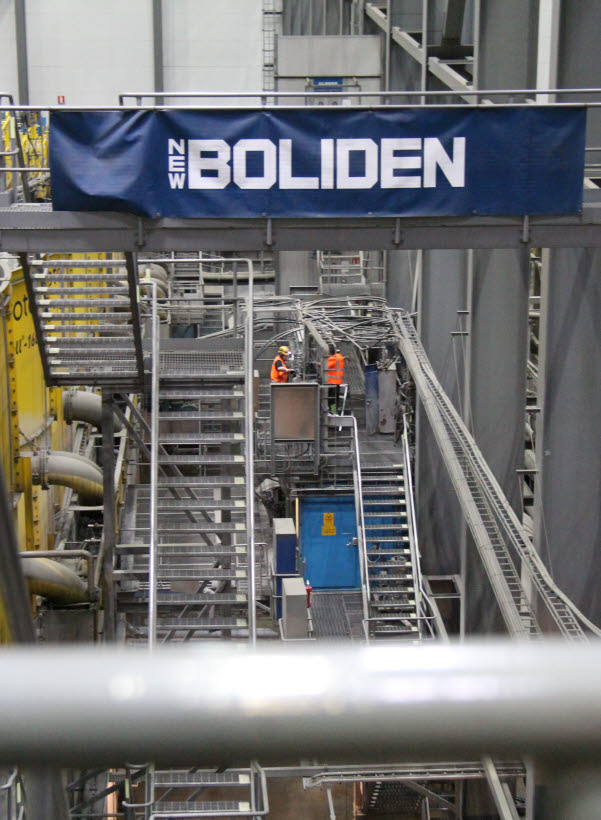A golden opportunity for a forest residual
In the Lignoflot project, Boliden, Luleå University of Technology and Sveaskog studied the possibility of using ecofriendly lignin to separate valuable minerals from waste-rock in the concentration process.

This is one of the ways to improve environmental performance through research collaboration that creates synergies between the forestry and mining industries.
Flotation is a physical and chemical process used to separate different metals from finely crushed ore in the concentration process. The ore is placed in tanks into which a reagent is added to separate valuable minerals from waste rock. Usually the chemical xanthate is used as an effective reagent, but there are potential health and environmental hazards if itis not handled correctly. Ulrika Rova, Professor of Biochemical Process Engineering at LTU, contacted Boliden and Sveaskog with a proposal. LTU wanted to study the possibility of using ecofriendly lignin, a residual forestry product, as an alternative to the chemicals used today. This resulted in a Vinnova financed preliminary study known as Lignoflot, which has provided good findings.
“Lignin has not previously had any field of application for the forestry industry, but was more or less just burned. LTU wanted to study what can be done using lignin to provide it with a value. In the beginning, I was skeptical to the idea, but thought we should give it a chance, but something seemed to work,” says Anders Sand, R&D Coordinator at Boliden.
Following completion of the preliminary study in September 2018, the Swedish innovation agency Vinnova has authorized a full-scale innovation project where lignin’s potential for practical use as an ecofriendly flotation collector will be studied further.

The project will run from May 2019 until September 2022, and the chemical manufacturer Nouryon will join the project as a partner. They will assist with reagent evaluation and their expertise in how the manufacture and use can be cost-effective.
“We want to tidy up any loose ends and carry out more tests to see what happens when various process parameters are changed. If we arrive at an effective method, we can scale up and carry out truly meaningful tests here. For it to be commercially viable in the future, we also have to work with a manufacturer, which is where Nouryon can help us,” continues Anders.
The new flotation collectors are not only biologically degradable but also a Swedish resource, in contrast to xanthates, which is primarily manufactured in China. Therefore, this type of research collaboration can help improve sustainability, reduce delivery risks and future-proof processes in the forestry and mining industries alike. Anders tells us that collaboration in the Lignoflot project has proceeded well.
“Sveaskog knows all about forest raw materials and Boliden is an expert on the flotation process, while LTU has the conditions and possesses the knowledge necessary for combining the two. We truly complement each other in an excellent way,” concludes Anders.
The project highlights the opportunities that exist in Sweden. For Boliden’s part, both the collaboration and the potential environmental improvements are good enough reasons to take part in the journey.